Message from the Tel Aviv Sourasky Medical Center CEO
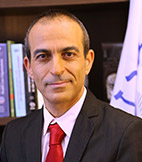
Dear Friends,
It is my privilege to address you for the first time as the CEO of Tel Aviv Sourasky Medical Center. Upon assuming this position, I directed the Medical Center leadership in a session to define our vision and strategy through 2020. I am pleased to let you know that our plan for 2016 is well under way.
My pledge, along with the management team’s, is to have a positive impact on the health of the more than one million patients who seek our care each year. Our organization continues to function with a clear vision, which drives high caliber management-team and employee performance.
From this vision, we are proud to present the Medical Center’s core values:
- Excellence and innovation
- Patient-centered care
- Staff investment and development
- An organizational culture of dedication, respect, openness and transparency
- Local, national and international influence
- An effective, organized management system and supportive infrastructure
Our valued and committed friends: I appreciate all that you have done to bring the Medical Center to its renowned position of excellence in medical care, research and education. With your support, I would like to call upon you to take an active role in realizing the future vision and help us achieve our mission.
I am available at any time and welcome dialog on our ambitious plans and rewarding milestones.
Wishing you and your loved ones a happy Passover and a pleasant spring.
Prof. Ronni Gamzu
CEO, Tel Aviv Sourasky Medical Center
Message from the Association of Friends CEO
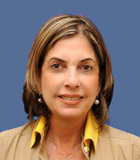
Dear Friends,
On the threshold of Passover, 2016, Europe and countries worldwide are facing a siege of grave, never-ending terror attacks. Here in Israel, we are also falling prey to attacks by lone terrorists with one mission – to fatally stab or run over victims. The fallout has been grievous.
Tel Aviv Sourasky Medical Center has been on the front line of this onslaught, with emergency response services to a serious shooting in central Tel Aviv and a stabbing rampage in Jaffa, to name two examples.
Our world-class trauma response services are at the ready 24/7. As Medical Center CEO Prof. Ronni Gamzu has stated, “We place tremendous importance on providing the most expedient care possible for these incidents. Medical team preparedness has continuously proven itself, providing the exact treatment expertise necessary.”
It is our honor to serve, and we are grateful for the opportunity to make progress in trauma care and a whole host of other medical disciplines. With this, we are making great headway with a number of essential renewal and advancement programs. We have many compelling initiatives ahead, and we trust that we can continue to count on you to help drive the Medical Center's accomplishments – for the health of our residents and visitors from around the globe.
Wishing you and your family a happy and peaceful holiday!
Sincerely yours,
Ronit Blum
CEO, Friends of the Tel Aviv Sourasky Medical Center
Donations
The brain cancer warriors: running a marathon to advance brain research and unlock secrets of the brain

In March 2014, Shira, a vibrant young Israeli woman, discovered that she had a brain tumor. Three months after her son, Gadi, was born, Shira underwent two successful operations performed by Prof. Zvi Ram, the Director of the Neurosurgery Division. Since then, Shira has been undergoing extended daily rehabilitation.
Wishing to express his gratitude to the hospital, Shira’s husband Dani started a social-media campaign to raise money for brain research. More than 200 people from all over the world donated a total of $40,000 (NIS 150,000) to brain research in honor of Dani’s participation in the 42-kilometer (26.1-mile) Jerusalem marathon.
We are extremely grateful to Dani for his efforts and commitment to advancing our understanding of the brain, and we wish Shira a complete recovery.
Giving a dramatic boost to support our research mission
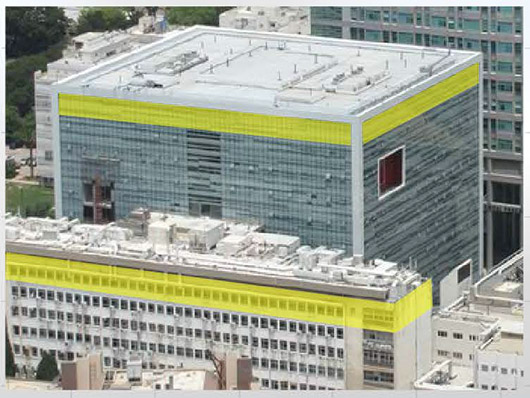
Morris Kahn, a long-time friend of the Medical Center who has given much for the advancement of genetics research, has graciously offered to continue his generous support. He is funding the construction of the new state-of-the-art research facility, which will be located on the 10th floor of the Sammy Ofer Building.
Forging ahead in biomedical research
The center will provide the ideal infrastructure and conditions for professional researchers in cancer, gastroenterology, genetics, surgery and other disciplines. We will enable new multidisciplinary research collaboration opportunities by placing these researchers close to one another.
Morris will also provide essential financial backing to help promising researchers make new discoveries in the field. We are extremely grateful to Morris for his commitment to our research initiatives.
On the front line
Terror attack on Dizengoff Street in the heart of Tel Aviv
January 1, 2016 — New Year’s Day — will not be forgotten quickly in the Medical Center. On that Friday afternoon, the eve of the Sabbath, a terrorist opened fire in a bar on Dizengoff Street in downtown Tel Aviv. Of the many who were wounded in the attack, four victims were rushed to the Medical Center’s Emergency and Trauma Center. Two young men, Alon Beckel and Shimon Rawimi, were pronounced dead in the Trauma Center. Our hearts broke at the cries of their grieving families.
Two other wounded people were hospitalized in intensive care in serious condition. They underwent lifesaving surgeries and were released after recovery.

Stabbing attack in Jaffa
In early March of this year, a 17-year-old terrorist from a small village in central Israel went on a stabbing rampage in Jaffa. He killed an American tourist and wounded 10 others, who were treated by skilledTel Aviv Sourasky Medical Center teams.
What's new?
Pursuing perfection: New Medical Center growth initiatives
With the Medical Center’s mission of medical excellence, we have challenged ourselves with the next round of development – to advance care for patients seeking our services.
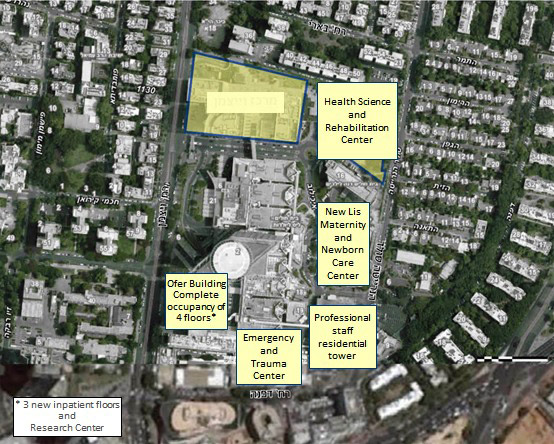
Construct the new Health Science and Rehabilitation Center
The new center will be a cornerstone of Tel Aviv Sourasky Medical Center’s quality rehabilitation services. It will provide the complete range of rehab services to meet local and regional demand, covering:
- Adult rehabilitation: neurology, orthopedics, occupational therapy, speech therapy and post-surgical rehab
- Pediatric and young adult rehabilitation, including soldier rehab
- Physical therapy for all ages
The 300-bed facility will feature a state-of-the-art Health Sciences Simulation Center, leveraging the latest medical technologies and systems. The building will host the new nursing school, enabling Tel Aviv Sourasky Medical Center to expand its vocational nursing training.

Construct a new floor for the Lis Maternity and Newborn Care Center
Lis Maternity and Women’s Hospital has earned a reputation as the site of choice for reproductive medicine in the Tel Aviv area and beyond, with leading-edge patient-centered care, obstetric talent and progressive technologies. The Lis Maternity and Newborn Care Center expansion project, which will add a new floor to the Lis building, construct 105 new rooms and renovate existing maternity hospital rooms, will offer the following benefits:
- More rooms for labor and delivery, post-partum and high-risk pregnancy
- Improved accommodations for more comfort and privacy
- Support for more newborns
- A more convenient emergency shelter facility for newborns and premature infants
- More options for babies to room in and for spouses to sleep over
Build a new Emergency and Trauma Center, replacing the existing 20-year-old facility
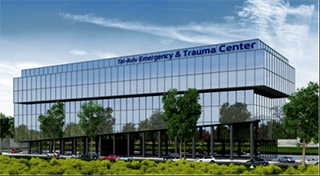
With 220,000 visits per year, the Tel Aviv Sourasky Medical Center is a Level-1 trauma center for the city of Tel Aviv and surrounding areas.
The new facility, with 150 beds and 344,000 square-feet (32,000 square meters) of space, will meet the following essential objectives:
- Support a growing number of patients
- Reduce door-to-doctor time and length of stay
- Enhance the patient care experience and provide patient privacy and comfort
- Expand mass-trauma response capabilities
- Offer ample parking and simplified access from main roads and public transportation
- Protect against external attacks, whether they are rockets, explosives, biological agents or chemical weapons
Dana-Dwek Children’s Hospital honored among the top 20 most technologically advanced children’s hospitals worldwide
In April 2016, the website Top Master's in Healthcare ranked Dana-Dwek Children’s Hospital as the 19th most technologically advanced children’s hospital in the world, calling it “a beacon of modern, state-of-the-art medical practices in the Middle East.”

The hospital was recognized for its groundbreaking pediatric surgery, highlighting Dana-Dwek’s microsurgical reconstruction, and specifically, a progressive procedure for facial reanimation.
Dr. David Leshem, Director of Pediatric Surgery, describes this procedure, which is performed by Prof Eyal Gur, the Director of the Plastic Surgery Department: “The surgeon transplants a muscle from the thigh to the paralyzed face to help cure complete or partial facial paralysis. This elegant surgery returns smiles to children's faces.”
Outstanding care across disciplines
The Top Masters’ in Healthcare website also recognized Dana-Dwek’s excellence in dozens of pediatric specializations and its team of pediatric surgeons, many of whom have trained at the best children’s hospitals in North America.
French official learns about the Medical Center’s benchmark terror-response strategies
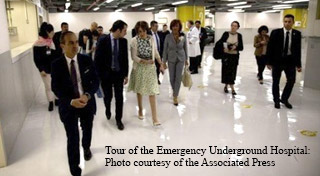
Following the spate of terror attacks in France and Europe, French Health Minister Marisol Touraine visited Israel to learn first-hand about trauma response.
A key stop on her tour was a meeting with healthcare professionals at Tel Aviv Sourasky Medical Center, where the Underground Emergency Hospital and the Emergency and Trauma Center exemplify best practices in emergency preparedness and care following terror incidents.
A first in Israel: the da Vinci Xi Robot used to treat tongue cancer
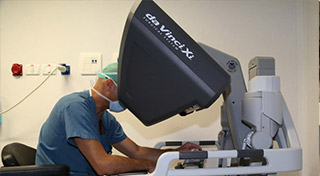
For the first time in Israel, surgeons have used the da Vinci Xi surgical robot to remove tumors of the tongue.
As explained by Prof. Dan Fliss, Director of the Ear, Nose, Throat, Head and Neck Surgery Division, and Dr. Moshe Yehuda, Manager of the Surgery Service for Head and Neck and Oncology, the robot, the only one of its kind in Israel, was used to operate on a 40-year-old woman with tongue cancer.
The surgeons performed this breakthrough procedure in order to avoid an operation that would have left a huge scar stretching from the patient’s nape to the middle of her neck.
Cutting-edge surgery
With the da Vinci Xi robot, the surgeon uses a remote-controlled console to perform surgery. The technology enables a much deeper view of the surgical field and can magnify the area tenfold. The results are dramatically reduced incision sizes, less bodily impact, minimal scarring and quicker recovery.
A successful operation
The surgery was performed in two parts. The first was to totally remove the tumor and reconstruct the tongue. The second part was to operate on the lymph nodes in her neck with a small incision. The patient was pleased with the results – and so were the surgeons.
As the doctors summarized: “Our job is to select the best surgery for each patient. This patient’s smile says it all.”
Pioneering live 3D-imaging technology reduces radiation
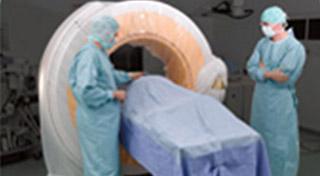
One major challenge for oncology surgeons is accessing hard-to-reach areas such as spinal discs, the pelvis or the shoulder blade. Surgeries in these areas tend to be more complex both in terms of the procedure itself and the patient’s recovery.
The first surgical technology of its kind in Israel
The O-arm system, new to Israel, and exclusive to Tel Aviv Sourasky Medical Center, displays organs in 3D in real-time during surgery, with maximum resolution and from various angles.
Dr. Ortal Segal, Senior Surgeon with the Medical Center’s National Institute for Orthopedic Oncology, comments on this recently introduced technology: “This device reduces surgical incision sizes, enabling minimally invasive procedures. This is because the innovative navigation system gives the surgeon a better view of the tumor without needing to expose the organs.” The technology shortens surgery time and exposes the patient to little or no radiation, while dramatically lowering post-surgical pain and accelerating recovery.
An innovative surgical table offers a new approach to hip replacement surgery

The Orthopaedics Division has recently installed the revolutionary Hana operating table, which could well revolutionize hip surgeries.
Direct hip access to minimize impact on adjacent tissue
As Prof. Moshe Salai, Chairman of the Orthopaedics Division describes, “With procedures such as anterior approach to total hip arthroplasty, the table allows surgeons to position patients so that hip replacements can be performed through a single anterior approach incision, without detaching the muscle from the pelvis or femur or impacting the nerves.”
Less impact; accelerated recovery
With this new procedure, patients can expect much faster muscle and soft tissue healing for quicker return to function. The Medical Center hopes to use this table for many of the 350 hip replacement procedures performed each year. In addition, the table can benefit the 120 patients seen annually with complicated pelvic fractures, torn ligaments, foreign body penetrations and chondral lesions common to trauma patients.
Beyond facilitating easier surgical access to the hip joint, the table also enables easier use of fluoroscopy – x-ray videos that help diagnose orthopedic injuries.
First print the tumor — and then remove it
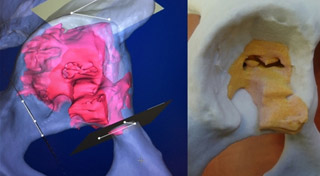
Three-dimensional printing, which creates 3D models directly from computer engineering plans, is gaining momentum in the surgical sphere. With this technology, 2D diagnostic CT and MRI images are converted into 3D images that are printed as a physical 3D model of the organ.
This innovation is being applied to surgical challenges, the greatest of which is the high precision required to excise malignant bone tumors from the bone.
Essential patient care applications
Three-dimensional printing technology has huge benefits in tumor removal planning for children – the main population affected by bone tumors – since their bones are still growing.
The 3D bone and tumor model helps surgeons assess the tumor location and exact cancer boundaries, to plan removal with maximum precision. This approach reduces the threat of relapse and increases the chances of preserving the joint and growth plates among children.
3D printing research making great strides
Dr. Solomon Dadia, a senior physician in the Medical Center’s National Orthopedic Oncology Department, is conducting a research project on pediatric patients suffering from primary bone cancer (sarcoma).
The project team is developing computer software that renders an image of the tumor, from which a plastic 3D model of the bone containing it can be printed. The surgeon then sketches the incisions on the computer image and prints them to practice the procedure before the actual removal. The software also constructs a 3D patient-specific instrument matching the bone surface, which is placed inside the body during the operation to define the tumor boundaries.
Reaching a new level of precision
These types of pre-surgery planning techniques reduce surgical errors by helping surgeons anticipate obstacles that could interfere with the operation, such as blood vessels and nerves in the tumor vicinity.
A follow-on project goal is to develop customized, patient-specific implants for bone reconstruction post tumor removal.
The project, conducted in partnership with Imperial College London, is recognized by the Israel Cancer Association.
New medical services
Inpatient Psychiatry Unit opening achieves patient care mission
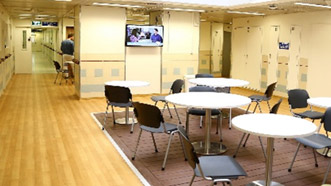
For the first time, Medical Center psychiatry patients have a natural place to turn for inpatient psychiatry services. The newly opened unit, which hosts 34 beds, goes a long way to help alleviate the shortage of psychiatry beds, a problem throughout Israel.
A place for patients to turn
Prof. Miki Bloch, Unit Director, explains about the services provided to voluntarily admitted patients, “The unit is a welcome solution for patients with depression, manic disorders, psychotic episodes, eating disorders and suicidal ideation. The unit also treats victims of sexual abuse. It dramatically expands the treatment options available at Tel Aviv Sourasky Medical Center.”
Filling a gap at a national level
Prof. Ronni Gamzu, Medical Center CEO, comments, “This service closes the loop in the healthcare reforms that I initiated as Director General of the Ministry of Health. The launch of this unit is a realization of my personal commitment to address serious shortcomings in Israel’s mental health services. I am so pleased that Tel Aviv residents now have this important resource – backed by world-class clinicians and state-of-the-art accommodations.”
30% increase in Emergency Department beds to expand and improve essential services and care

A newly constructed Emergency Department wing containing 16 beds is being added to the existing 50-bed facility to reduce overcrowding and improve care and services. Along with this expansion, the department is implementing new technologies to upgrade the patient experience and support the medical team.
Thoughtful donors make the extension a reality
The ED expansion was generously supported by the Heseg Foundation, the non-profit of former lone soldiers, and Strauss Ltd., the international food and beverage company headed by Ofra Strauss.
An element of a larger vision
The Tel Aviv Sourasky Medical Center Emergency Department is among the busiest in the country, if not the busiest. This crucial construction is a stop-gap measure until the new 150-bed Medical Center Trauma and Emergency Center is completed.
A round of applause
Awards
Prof. Sami Viskin wins prestigious Journal of the American College of Cardiology (JACC) award
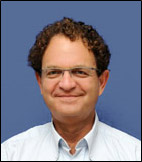
The 2015 Lionel Distinguished Researcher/Scientist Prize was awarded to Prof. Sami Viskin, Director of the Cardiology Inpatient Unit and the Cardiology Division’s Holter Monitor, ECG and Ergometry Laboratory. Prof. Viskin received the international prize for his years-long groundbreaking research.
Dermatology Department research displayed in the Our Gateway to the World exhibition at Ben Gurion Airport
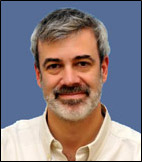
This groundbreaking research discovered the gene responsible for human fingerprints. It was performed by Prof. Eli Sprecher, Dermatology Department Director, and his research lab team. The study was among the 60 discoveries presented at the exhibition, the first of its kind by the Ministry of Technology, Science and Space. It was chosen because of its impact on billions of people throughout the world. The year-long exhibition is expected to be viewed by over eight million visitors to Israel.
Appointments
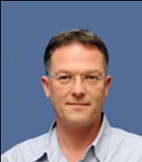
Prof. Arye Blachar
Director of the Imaging Division
Prof. Blachar is replacing Prof. Moshe Greif, who has retired.
Research excellence
New study reveals that 40% of early-diagnosis breast cancer patients underwent unnecessary medical tests
Every year in Israel, about half of the 4,500 women with breast cancer are diagnosed at early stages. These women have nearly a 100% chance of recovery, with the odds of discovering metastases close to zero. According to current medical standards, there is no way to detect breast cancer metastases early and attempts to do so only impact patient quality of life.

Research performed by Dr. Larissa Rivo, Senior Physician in the Medical Center’s Oncology Division, found that despite leading international medical recommendations that additional testing, such as PET-CTs, CTs and MRIs, is not necessary, many breast cancer patients undergo a battery of extraneous tests.
The consequences of needless testing
The implications, according to Prof. Moshe Inbar, the Director of the Oncology Division, are that a tremendous amount of money is wasted by the healthcare system. Worse yet, these tests put patients under unnecessary stress and anxiety and can cause harm. If the numbers reflect the trend in Israel overall, the country could save over $1 million a year, reduce the load on imaging services and reduce impact on patients.
Getting to the root cause
Dr. Rivo, with the help of the National Center for Health Service Research, plans to expand the research to other hospitals and discover why physicians are performing these tests. Several possibilities include: lack of physician knowledge, physician preferences to exceed practice standards or patient pressure.
Psychiatry Division: progressive research for high-impact outcomes
With the Psychiatry Department’s opening of a first-ever inpatient department, Prof. Miki Bloch, Department Director, describes several of the many research studies being performed by the department:
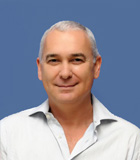
The effect of preventative antidepressant treatment for women undergoing in vitro fertilization who experience emotional distress: This trial shows that women can substantially lighten distress with short-term antidepressant treatment before undergoing IVF.
Psychotherapeutic intervention study for treating phobia of childbirth (tokophobia): This soon-to-be-launched study is highly relevant for millions of women who suffer extreme distress and/or choose caesarian section surgery rather than vaginal delivery.
Large-scale longitudinal study on women with postpartum depression:
This research hopes to shed light on long-term outcomes of postpartum depression, risk factors for this condition and effective treatment.
The department is developing a new interventional, noninvasive neurofeedback technique based on advanced functional MRI (fMRI) to increase or decrease specific brain activities that are not regulated in various pathological conditions.
Women suffering from PMDD (premenstrual dysphoric disorder): A current study applying direct neurological feedback acquired in real time from electromagnetic documentation is showing positive results. The team is also studying the use of deep transcranial magnetic stimulation (dTMS) as a treatment for PMDD.
Treatment of PTSD patients suffering from intrusive traumatic memories, including childhood sexual trauma
This new study holds great hope because current PTSD treatment options are very limited and ineffective.
The impact of EEG-neurofeedback targeting amygdala activity on pain, sleep and quality of life in patients with fibromyalgia
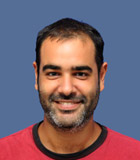
Congratulations are in order to Prof. Haggai Sharon, MD, Senior Physician and Researcher at the Center for Brain Function and the Pain Medicine Institute. He recently earned the Israeli Society for Biological Psychiatry award for the best research combining basic and clinical research, for his work on fibromyalgia pain.
Studying a brain-directed treatment for fibromyalgia
Reduced pain inhibition in the brain may cause pain hypersensitivity in certain chronic pain states. One such pain condition is fibromyalgia syndrome (FMS), in which patients experience widespread chronic pain, cognitive and emotional abnormalities, abnormal sleep and chronic fatigue. Prof. Sharon’s neurofeedback study of a novel, non-invasive, non-pharmacological treatment taught FMS patients to consciously change the activity of specific brain areas related to both emotional and pain processing.
Encouraging study outcomes
Preliminary study results suggest that neurofeedback may improve disease-specific symptoms, widespread pain and sleep indices. The research team is now seeking funds to perform a larger clinical trial and improve the neurofeedback protocol and interface. The team also plans to explore the effect of neurofeedback, targeting different brain regions using advanced neuroimaging techniques in patients with chronic pain.
Oral ketamine for treatment-resistant major depression and suicidal ideation
Prof. Haggai Sharon recently won the NARSAD Young Investigator Grant from the Brain and Behavior Research Institute for his work on major depression, a common yet devastating disorder. With current drug therapy, full therapeutic effects are slow and do not help suicidal thoughts and behaviors. Also, about 40% of patients fail to attain remission, suffering from treatment-resistant depression (TRD).
Investigation of ketamine treatment options
While intravenous ketamine, a widely used sedative and anesthetic, has been shown to provide rapid and short-lived amelioration of TRD and suicidal thoughts, it is severely limited because it must be administered intravenously in a hospital setting.
Prof. Sharon’s research assessed the clinical efficacy and safety of oral ketamine for outpatients with TRD. Sor far, the results of this randomized controlled study suggest that oral ketamine may hold significant promise in treating this challenging condition. The research team is seeking funds for follow-up research to treat suicidal behavior and to explore ketamine's antidepressant brain activity effects by using advanced brain-imaging techniques.
